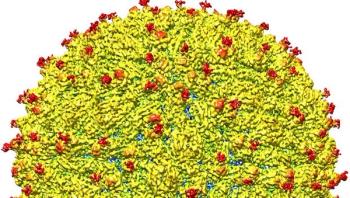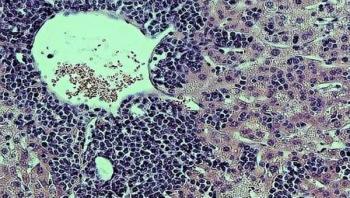
News





Researchers have determined the structure of a human antibody bound to the Zika virus, revealing details about how the antibody interferes with the infection mechanism -- findings that could aid in development of antiviral medications.






There are more than 25 drugs to control HIV, yet the virus remains one of the world’s biggest health problems. One of the many challenges with existing therapies is that a dormant version of the virus is always lurking in the background, ready to attack the immune system as soon as treatment is interrupted. Now, new research from the Rockefeller University and the National Institutes of Health suggests that treatment with two anti-HIV antibodies immediately after infection enables the immune system to effectively control the virus, preventing its return for an extended period.




Researchers from Princeton University's Department of Molecular Biology have developed a new method that can precisely track the replication of yellow fever virus in individual host immune cells. The technique, which is described in a paper published March 14 in the journal Nature Communications, could aid the development of new vaccines against a range of viruses, including Dengue and Zika.

Frozen and freeze-dried products for fecal microbiota transplantation (FMT) are nearly as effective as fresh product at treating patients with Clostridium difficile (C. diff) infection, according to researchers at the University of Texas Health Science Center at Houston (UTHealth) School of Public Health and Kelsey Research Foundation. A new study, which proves that a pill form of treatment could be effective and more convenient for patients and physicians, was published in the most recent issue of Alimentary Pharmacology & Therapeutics.








Although Zika and dengue are considered different virus “species,” they are so closely related that the immune system treats Zika just like another version of dengue, report researchers at La Jolla Institute for Allergy and Immunology. Their latest study, published in the March 13, 2017, advance online edition of Nature Microbiology, shows that pre-existing immunity to dengue virus modulates the magnitude and breadth of the immune system’s T cell response to Zika.

In February 2017, a new A(H7N9) virus -- indicating high pathogenicity in poultry -- was detected in three patients connected to Guangdong, China, as well as in environmental and poultry samples. This is an important development to be monitored, however, European Centre for Disease Prevention and Control (ECDC)'s updated rapid risk assessment concluded that the risk of the disease spreading within Europe via humans is still considered low, as there is no evidence of sustained human-to-human transmission. Although the genetic changes in A(H7N9) may have implications for poultry, to date, there is no evidence of increased transmissibility to humans or sustainable human-to-human transmission.



New research is paving the way for the development of innovative drugs that restore antibiotic susceptibility in antibiotic-resistant superbugs such as Klebsiella pneumoniae, a main cause of fatal lung and bloodstream infections worldwide. Researchers at the University of Copenhagen and Ross University School have discovered a new way to restore antibiotic susceptibility in multidrug-resistant (MDR) Klebsiella pneumoniae and Escherichia coli strains. The results of this research have recently been published in two scientific journals, Scientific Reports and Antimicrobial Agents and Chemotherapy, which are published by Nature Publishing Group and the American Society for Microbiology, respectively.

Standard precautions (SPs) are one of the cornerstones of infection prevention and control, designed to limit bloodborne pathogen exposures among healthcare workers (HCWs) and halt the transmission of healthcare-associated infections (HAIs) to patients. To review, the components include hand hygiene, use of appropriate personal protective equipment (PPE), safe use and disposal of sharps, decontamination of envi-onment and equipment, patient placement, and linen and waste management